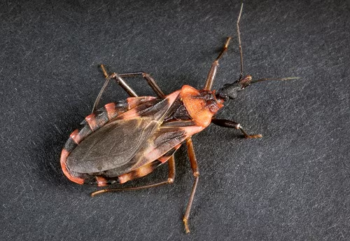Meningococcal disease is a rare but potentially deadly disease. It is also seasonal and peaks during winter.
The good news is there is vaccine available to protect people from getting sick and County health officials are encouraging parents to make sure their children get it.
“Meningococcal disease can be prevented,” said Wilma Wooten, M.D., M.P.N, county public health officer. “Vaccinating your children is the best line of defense against these bacteria.”
Anyone can get meningococcal disease. However, it is most common in infants less than 12 months of age and young people between the ages of 16 and 21.
Every year, 1,000 to 2,600 people get meningococcal disease in the United States. Of those, 10 to 15 percent die. Since 2007, there have 55 cases of meningococcal disease reported in San Diego, including four deaths, the most recent death reported two weeks ago.
Of those who survive meningococcal disease, many are affected for life. About 11to 19 percent lose their arms or legs, become deaf, develop problems with their nervous systems or suffer seizures or strokes.
There are two types of meningococcal vaccine available; one for people 55 and younger and another for people older than 55. The Centers for Disease Control and Prevention recommends that adolescents under 18 years old get their first dose at 11 or 12 years old and a booster at age 16.
In San Diego County, about 50 percent of preteens and teens have been vaccinated against meningococcal disease.
“Meningococcal disease can kill a healthy young person in just one day,” Wooten said. “It is especially important for teens and adolescents to get the vaccine, as well as for people in the increased risk groups.”
Other people at increased risk include:
- College students living in dorms, especially freshmen
- Adolescents and young people with HIV
- Lab personnel exposed to the meningococcal bacteria
- U.S. military recruits
- People living or traveling to parts of the world where meningococcal disease is common, such as in parts of Africa
The meningococcal disease bacteria can be spread from person to person through respiratory droplets. You may become infected if you are around someone with the condition when they sneeze or cough. The disease is also spread through close contact, such as sharing drinking glasses, eating utensils, or water bottles. It can also be spread by kissing, smoking and living in close quarters.
Meningococcal infections can be treated with antibiotics, such as penicillin. About 20-40 percent of young adults are asymptomatic carriers of the bacteria, so overcrowded conditions such as schools and military camps can increase transmission.
For more information on vaccines, call the HHSA Immunization Branch at (866) 358-2966 or visit www.sdiz.org.





